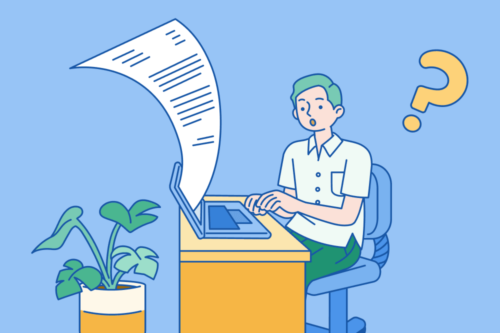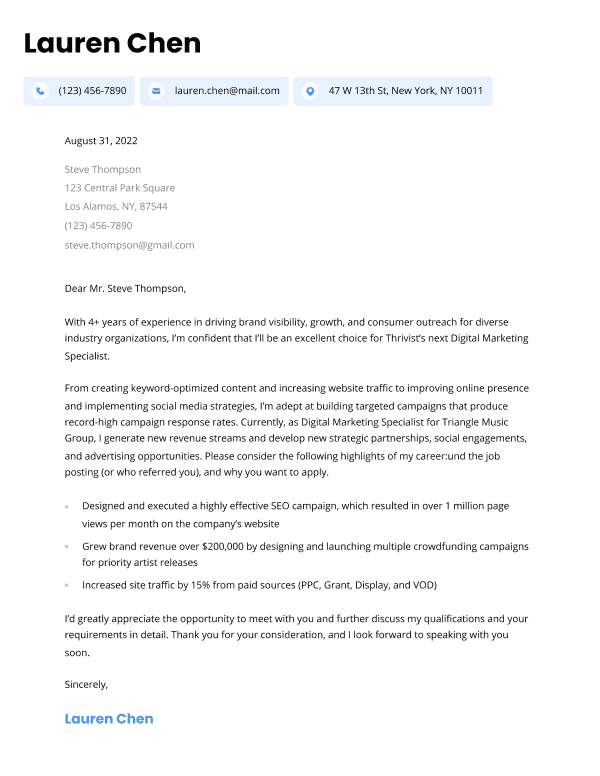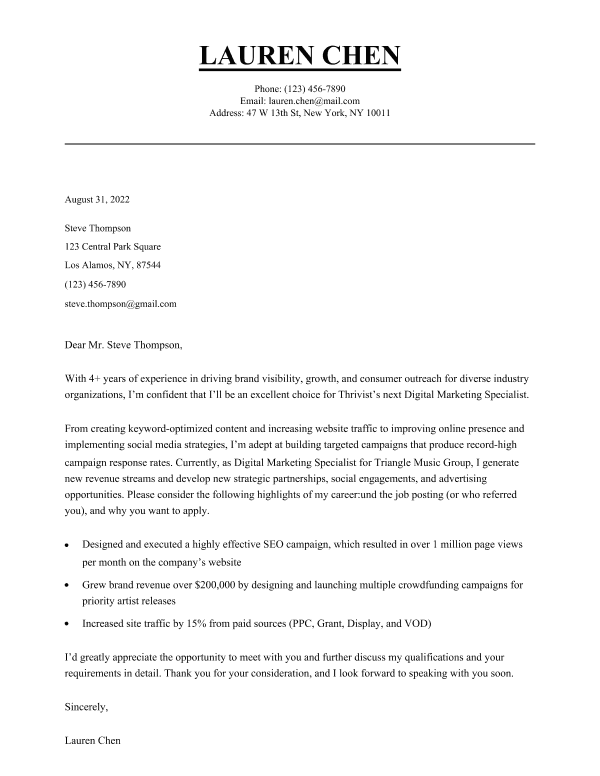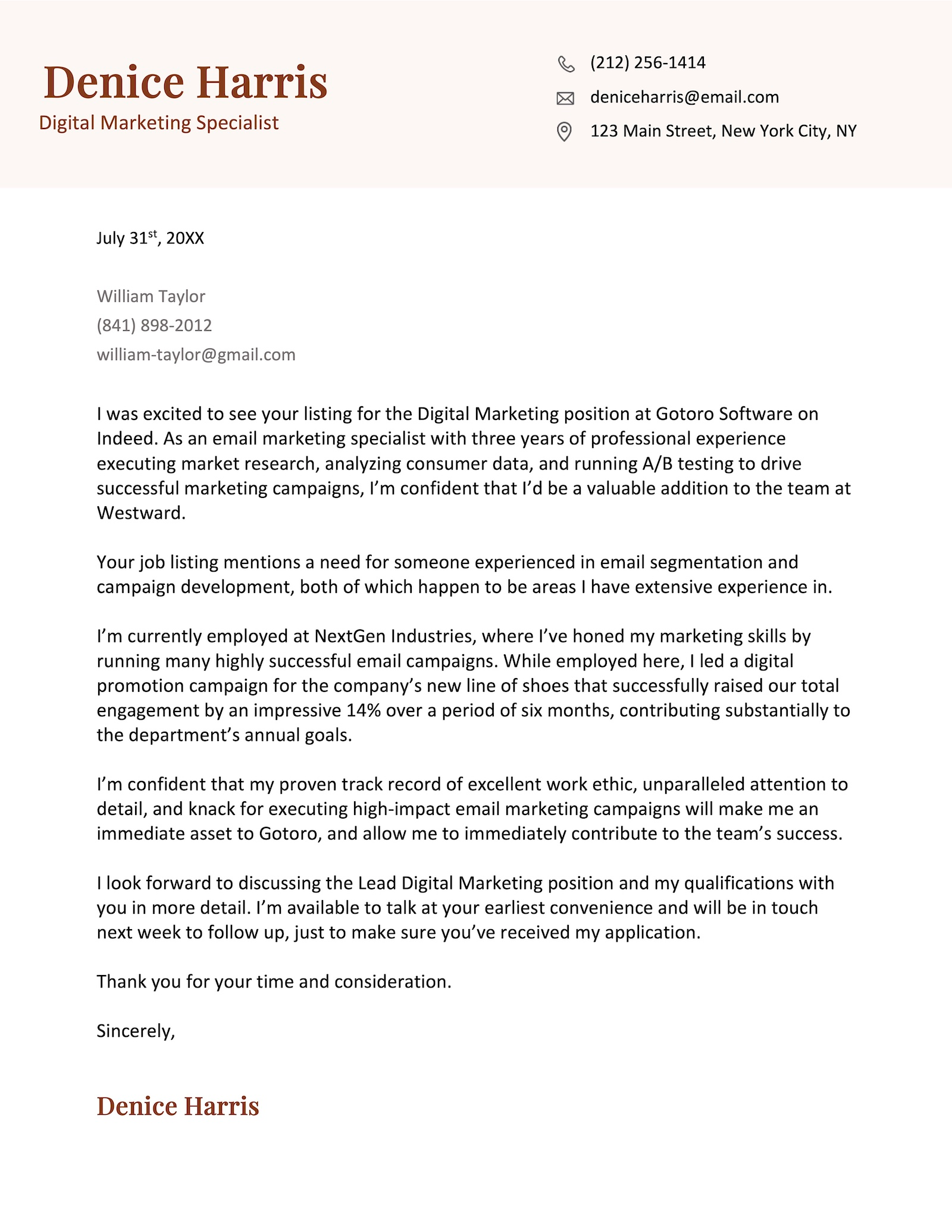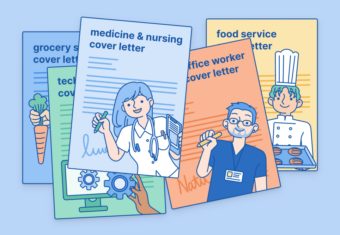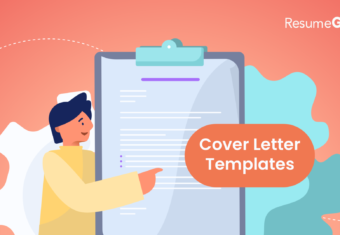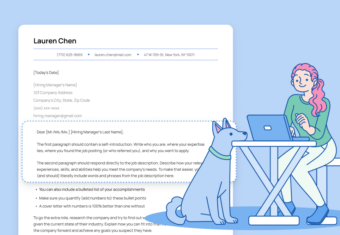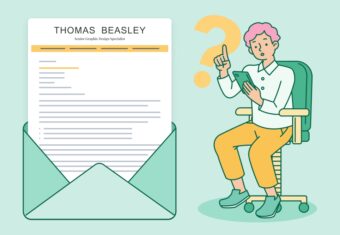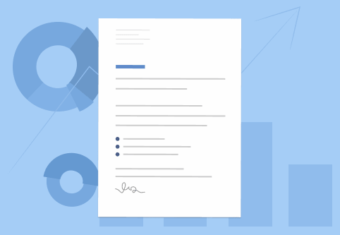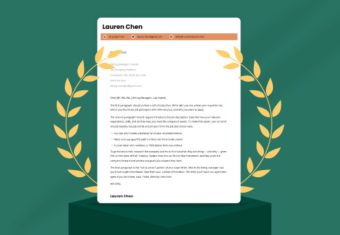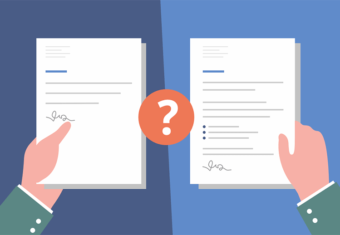The purpose of a cover letter is to introduce you to an employer, and give them additional information about your qualifications, character, and why you’re interested in working for them.
In this article, we’ll show you what a great cover letter looks like, and explain all the different types of cover letters that you might need to write.
Our free-to-use cover letter builder can make you a cover letter in as little as 5 minutes. Just pick the template you want, and our software will format everything for you.
Example cover letter for a job application
Not sure what a cover letter should look like? Here’s a simple cover letter example written by a mid-level candidate:
What should I include in a cover letter for a job?
Here’s a quick look at what to include in a cover letter for a job:
- Contact information – List your name and contact details in your cover letter header, followed by the hiring manager’s name and contact details.
- Salutation – Greet the hiring manager ideally with their preferred honorific (Mr. / Mrs. / Ms. / Dr. / etc.) and their name. Can’t find their name? “Dear Hiring Manager” is acceptable.
- Opening paragraph – In your cover letter’s first paragraph, formally greet the hiring manager. Introduce yourself, and explain how you found the job posting.
- Body paragraph(s) – Provide information about your previous work experience, and how it’s relevant to the job. Also use this space to list details about your professional accomplishments and skills.
- Closing paragraph – In your closing paragraph, restate your interest in the position, and thank the hiring manager for their time.
- Sign-off – End your cover letter with a sign-off like “Sincerely,” and then sign your name below.
Types of cover letters used in 2024
Your cover letter is the most versatile part of your job application. A great cover letter showcases your personality, argues why you’re the best person for the role, and even explains unique circumstances (if you have any).
These are the most common types of cover letters:
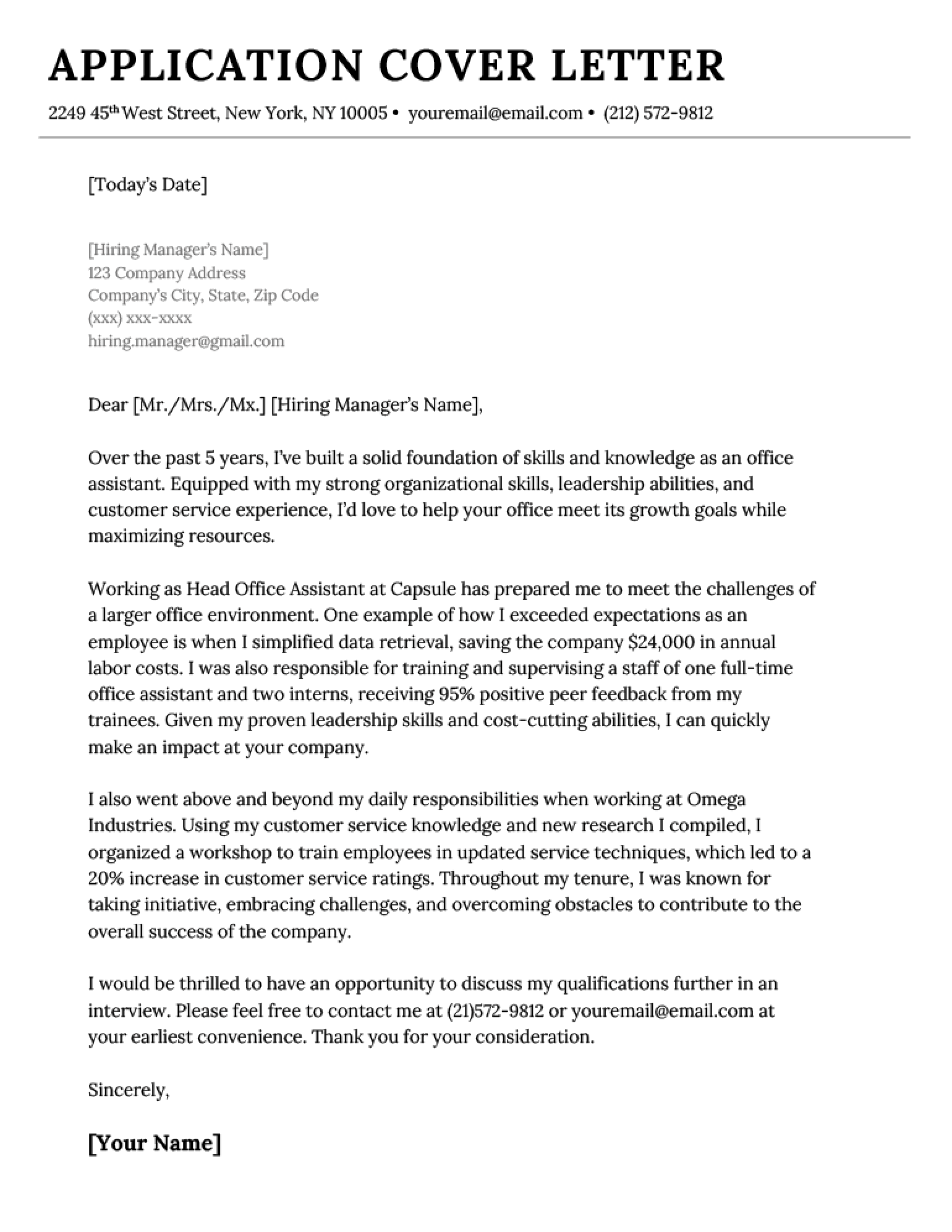
Application cover letter
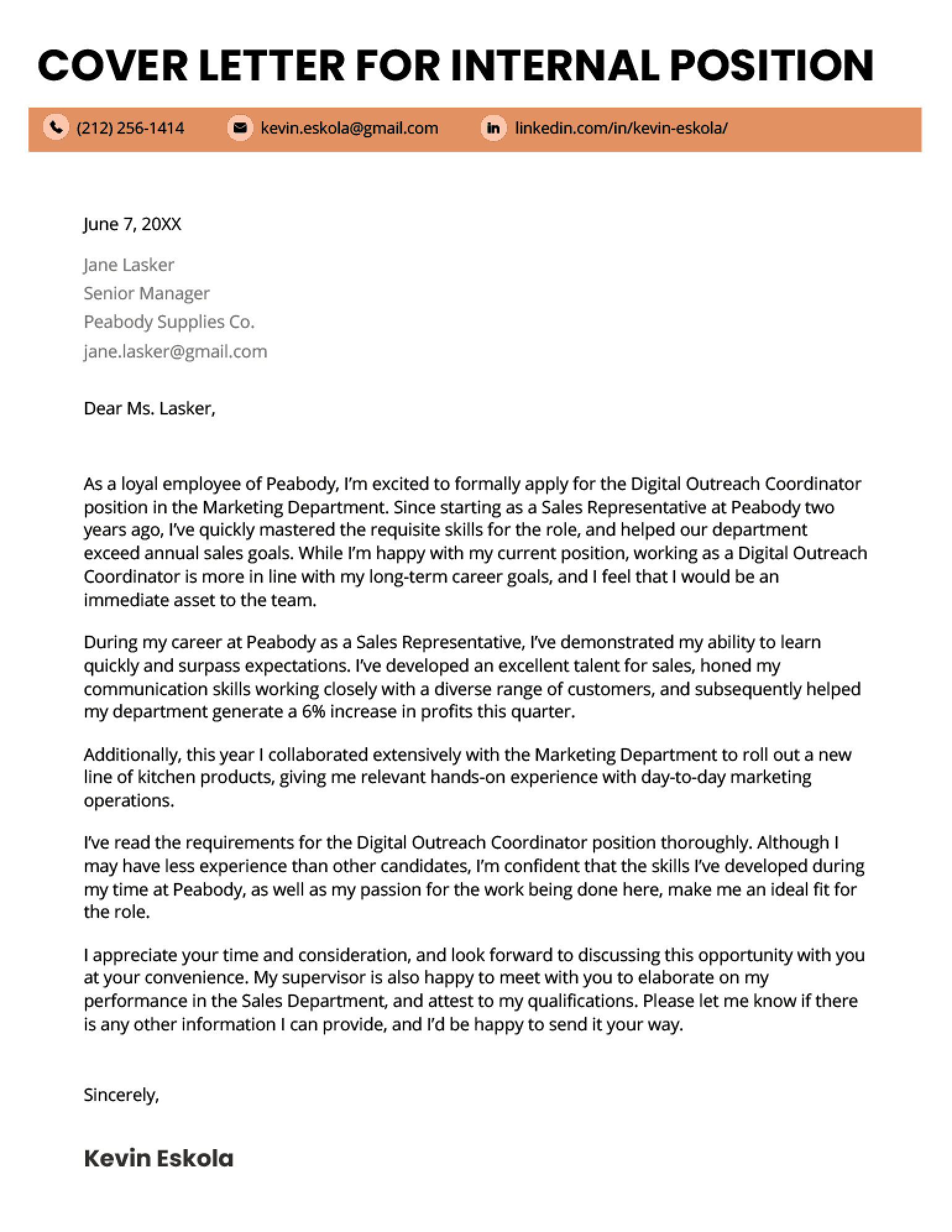
Cover letter for internal position
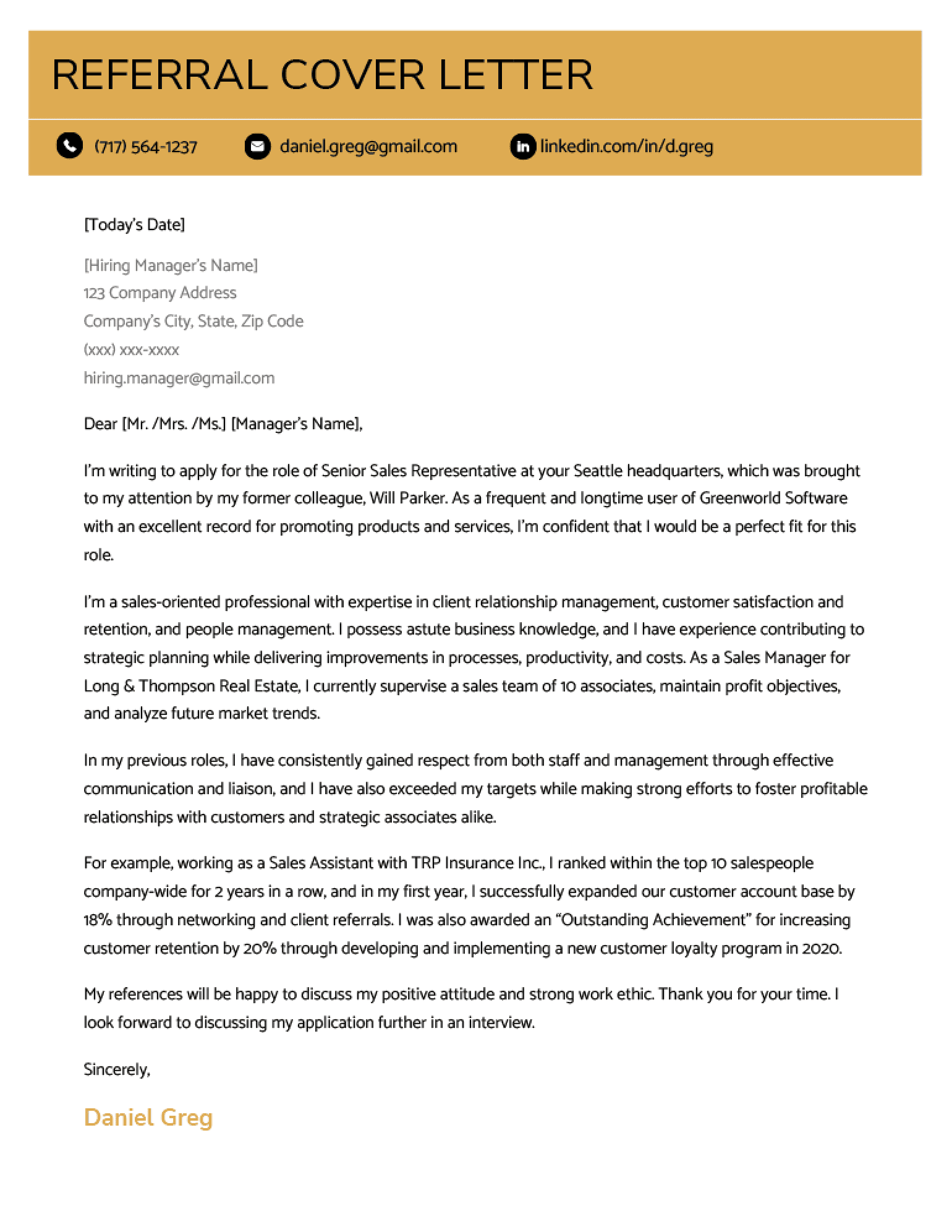
Referral cover letter
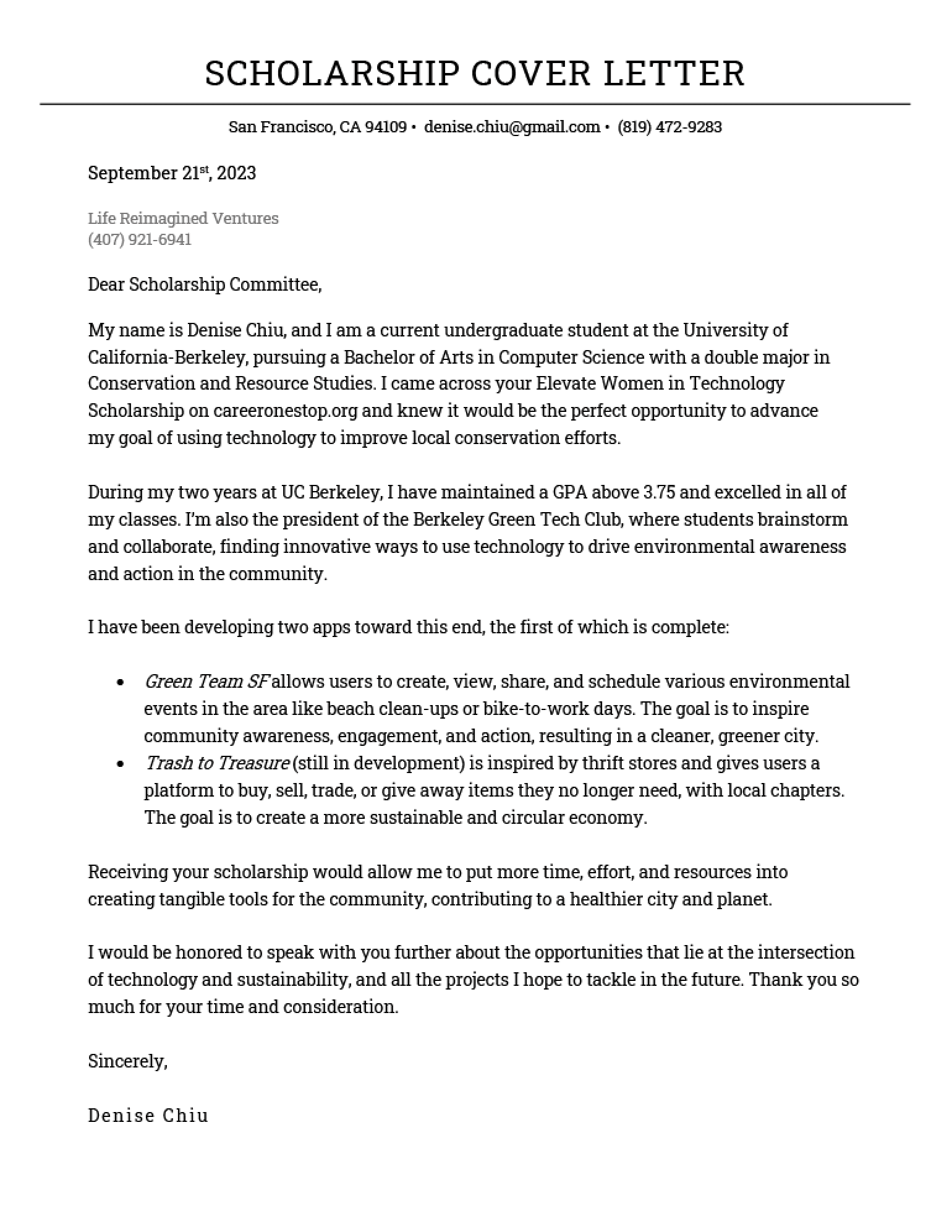
Scholarship cover letter
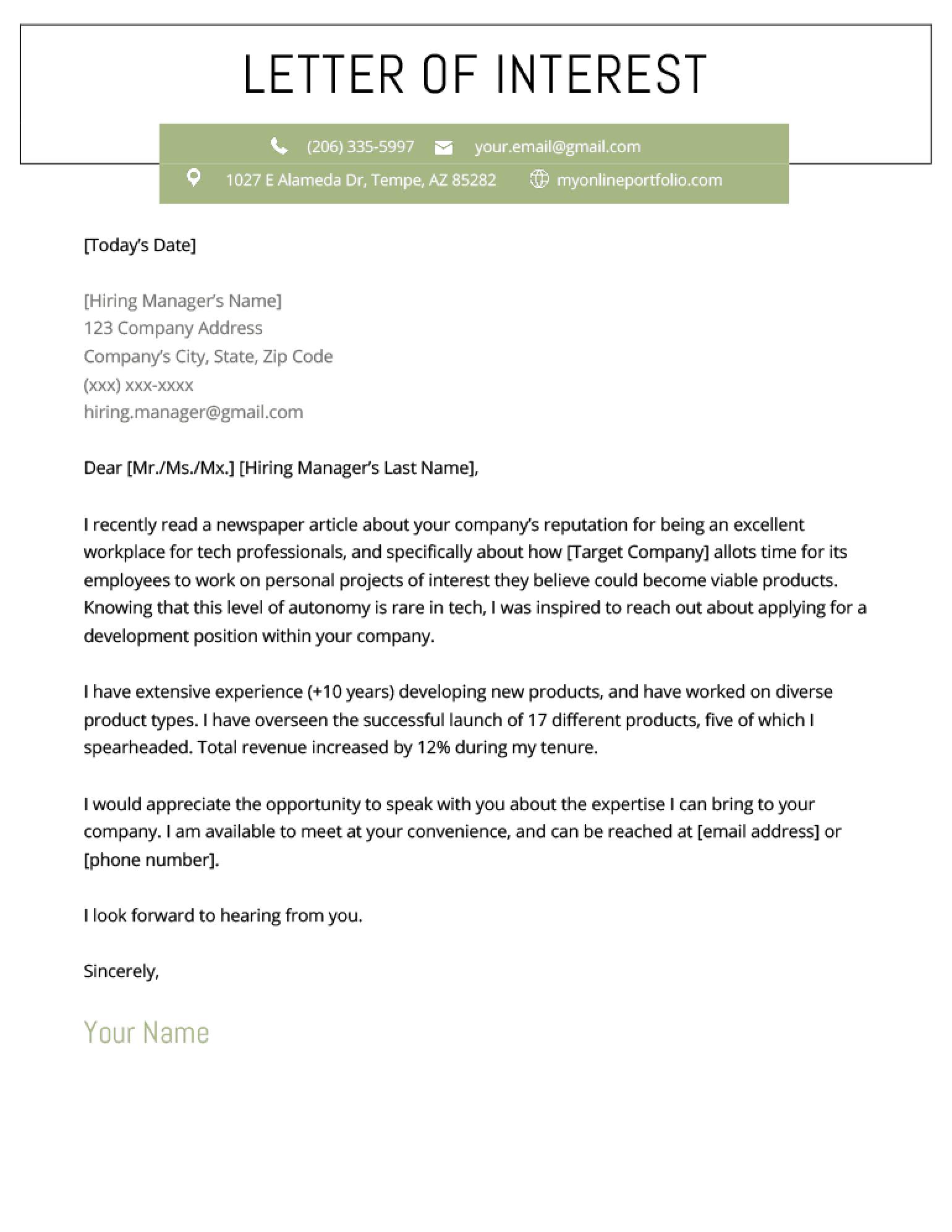
Letter of interest
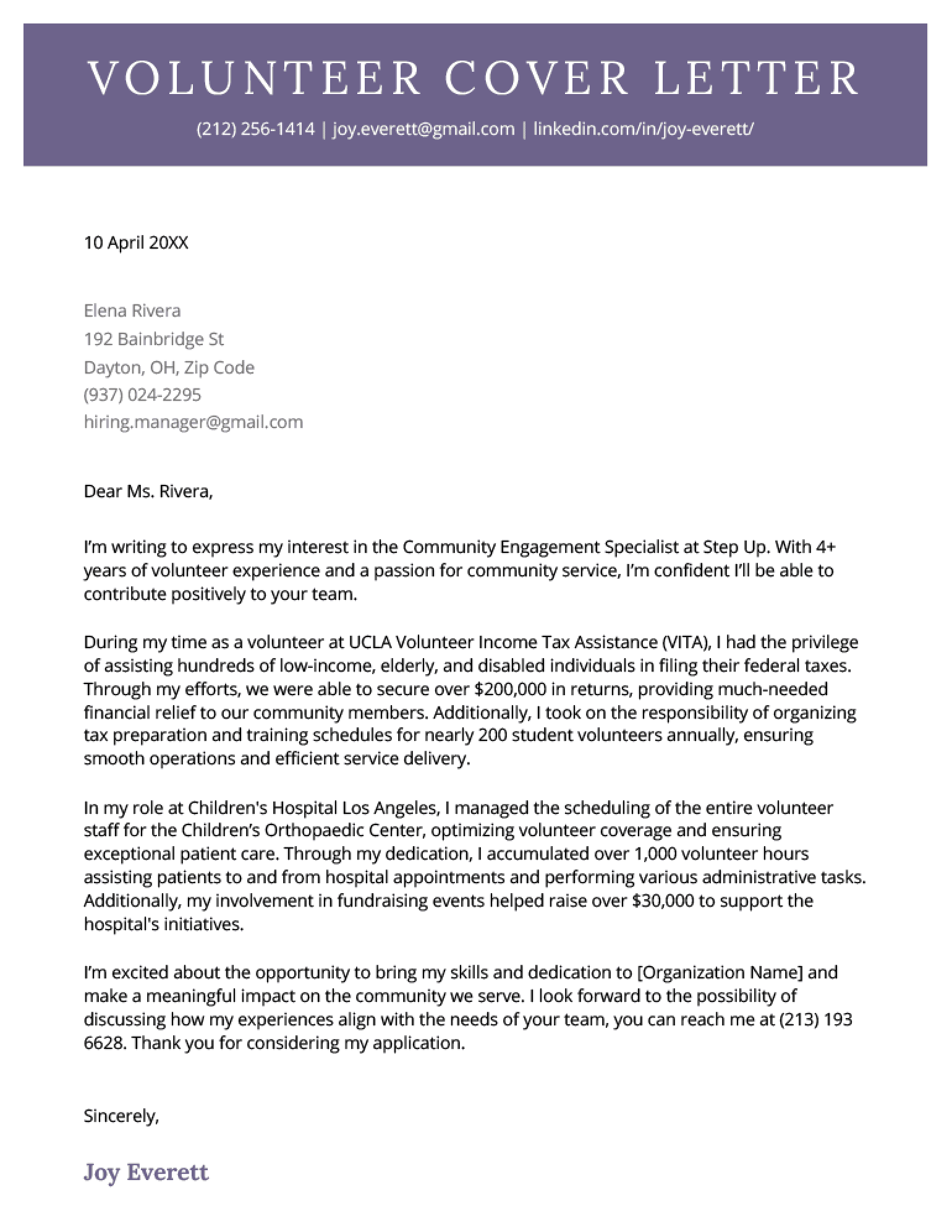
Volunteer cover letter
1. Application cover letter
An application cover letter is the most common type of cover letter and is used to apply to an open job position – think of it as the default cover letter.
Your application cover letter should briefly outline your professional experience and skills, and make a compelling argument for why you’re the ideal person for a job.
You can also use your cover letter to explain anything that isn’t addressed in your resume. For example, a gap in your employment history or that you’re interested in changing careers.
2. Cover letter for an internal position
A cover letter for an internal position is what you submit to your employer if you’re applying for a different position within your current organization.
For example, if you’re applying for a promotion or want to transfer departments, you might need to write an internal cover letter to formally apply for the new position.
A cover letter for an internal position differs from a regular cover letter because it doesn’t include a formal introduction (your company already knows you). Instead, it focuses on your commitment to the company you currently work for, and your specific accomplishments while working there.
3. Referral cover letter
If you’re being referred for a job by a current employee of the company, then you should write a referral cover letter.
The main difference between a referral cover letter and a regular cover letter is that you mention the name of the employee referring you in the opening paragraph of your cover letter. This way, you immediately grab the attention of the hiring manager and are given extra consideration.
4. Scholarship cover letter
Many scholarships require you to submit a scholarship cover letter along with your other application materials.
Writing a cover letter for a scholarship gives you the opportunity to highlight your:
- Interests
- Goals
- Commitment to your education
The goal of a scholarship cover letter is to ultimately convince scholarship committees that you deserve their assistance.
A scholarship cover letter differs from a standard cover letter because it targets your future ambitions and educational achievements rather than your work experience.
5. Letter of interest
Are you interested in working for a company but they don’t have any publicly listed job openings?
In this situation, you’d write a type of cover letter called a letter of interest (sometimes called a speculative cover letter) to communicate to the hiring manager that you’d like to be considered for any open positions they might need to fill but aren’t advertising or future roles that become available.
A letter of interest is a great way to show initiative and be considered for positions that companies have available but don’t urgently need to fill. Even if you don’t immediately land a job by sending a letter of interest, it’s still a good way to be considered for future job openings.
Not sure how to write your cover letter? Our AI cover letter generator can help you draft and format a professional cover letter in no time.
6. Volunteer cover letter
Some organizations require applicants to submit a cover letter when applying for volunteer positions.
A volunteer cover letter is similar to other types of cover letters, but with a focus on your willingness to donate your time rather than seeking paid employment.
When writing a volunteer cover letter, focus on your enthusiasm for the organization’s mission and explain how your skills and experiences align with their needs.
Why including a cover letter with your resume is important
Including a cover letter in your job application is essential in a variety of situations. For example, you should always write a cover letter if:
- The job advertisement requests that you submit a cover letter
- Someone at the company suggested you include them in your cover letter as a referral
- The job you’re applying for requires writing skills
However, even if the job you want doesn’t require a cover letter, you should still write one when possible.
Including a well-written cover letter in your job application helps you stand out from other candidates. It can even convince an employer that you’re the right person for the job – even if your resume isn’t 100% what they’re looking for.
Finally, your cover letter is the perfect opportunity to explain your unique situation and qualifications. This much-needed context is something that your resume simply can’t communicate on its own.
Frequently asked questions about cover letters
Still have questions about making a cover letter? Here are a few of the most frequently asked questions about cover letters:
What should not be included in a cover letter?
Here’s what shouldn’t be included in a cover letter:
- Spelling or grammar mistakes: mistakes make you look sloppy and are an immediate red flag
- Salary expectations: your cover letter isn’t the appropriate place to discuss salary. Instead, talk about this once you’re offered the job.
- Inappropriate personal details: information about your sexuality, race, or religion don’t belong on your cover letter and put you at risk of hiring discrimination.
- Lies or exaggerations: if employers find out you aren’t being honest, they won’t want to hire you.
- Too much information: your cover letter should be concise and only highlight your most relevant qualifications.
- Negative comments about previous employers: all the information on your cover letter should be polite and professional, focusing on what you can do for prospective employers.
The details above are all considered cover letter red flags by employers, and can derail your chance of landing a job.
Who reads cover letters?
Cover letters are read by hiring managers or employers. If a job ad lists a cover letter as a requirement and your application is being seriously considered, then someone is definitely reading your cover letter.
That’s why it’s important to ensure your cover letter is well-written and effectively communicates your value as an employee.
Are optional cover letters really optional?
Yes, optional cover letters are really optional. However, submitting a cover letter even when it’s not required is still a good idea if you’re really interested in a job.
Submitting a well-written cover letter communicates to employers that you’re serious about the position, and allows you to elaborate on your employment history, achievements, and skills.
The only situation you definitely shouldn’t include a cover letter with your job application is if the job ad specifically states not to submit a cover letter, or there’s no place to include one on the online form.
What is the difference between a cover letter and an introduction statement?
The difference between a cover letter and an introduction statement is that a cover letter serves as a complement to your resume and is part of a job application, while an introduction statement (or letter of introduction) is a quick summary of your career used for networking purposes.
For example, you might use an introduction statement to introduce two of your business connections to each other, or you could ask an acquaintance to write one for you and introduce you to someone in their network who you’d be interested in working with.
Click to rate this article
4.9 Average rating


